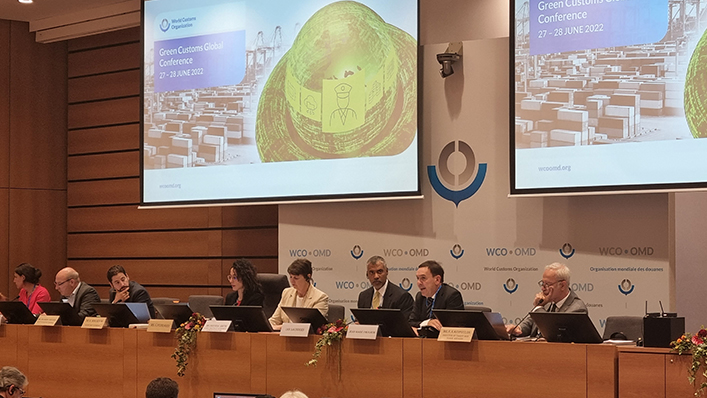
More and more trade measures are related to the environment, DDG Paugam noted. Since 2009, WTO members have notified around 14,600 trade-related environmental measures, with one in six measures now being environmentally related compared to one in 12 measures in 1997.
“Most of these measures are the kind of policies that will require direct or indirect action from customs officials, such as environmental requirements, conformity, risk assessment procedures, import and export licences, bans, quotas, and so on,” he said.
“This means a lot of added challenges and work for customs officials. And trade negotiators absolutely need to be aware of these challenges if they want their measure to be efficient in practice in having a concrete impact for the environment.”
Customs officials need to be engaged early in the process to ensure these policies are coherent, fit-for-purpose and implementable. “Their views are vital to ensuring effective implementation — we need to hear their voices on what approaches and types of support will be required to adopt new green technologies and facilitation measures,” he said.
DDG Paugam cited several concrete initiatives that can be taken to step up cooperation between trade and customs officials. These include exchanging data on environmentally related trade measures to help detect future trends in custom practices, using the environmental initiatives launched by a large number of WTO members on trade and environmental sustainability and plastics pollution as a “laboratory” of ideas to forecast what customs officials will need to know and deliver on, and increasing cooperation on technical assistance and capacity-building.
DDG Paugam also told the WCO conference that the WTO’s 12th Ministerial Conference (MC12) held from 12 to 17 June produced important outcomes for the WTO’s trade and environment work. Ministers affirmed that climate change is a global environmental challenge and cited the importance of the multilateral trading system in achieving the UN’s Sustainable Development Goals (SDGs). MC12 also produced the first multilateral agreement to curb harmful fisheries subsidies, in line with the mandate fixed under SGD 14.6, he said.
“It is the first time in almost 80 years of the multilateral trading system that WTO members agreed to adopt trade obligations with the central purpose of contributing to environmental sustainability,” DDG Paugam noted.
Share
Reach us to explore global export and import deals